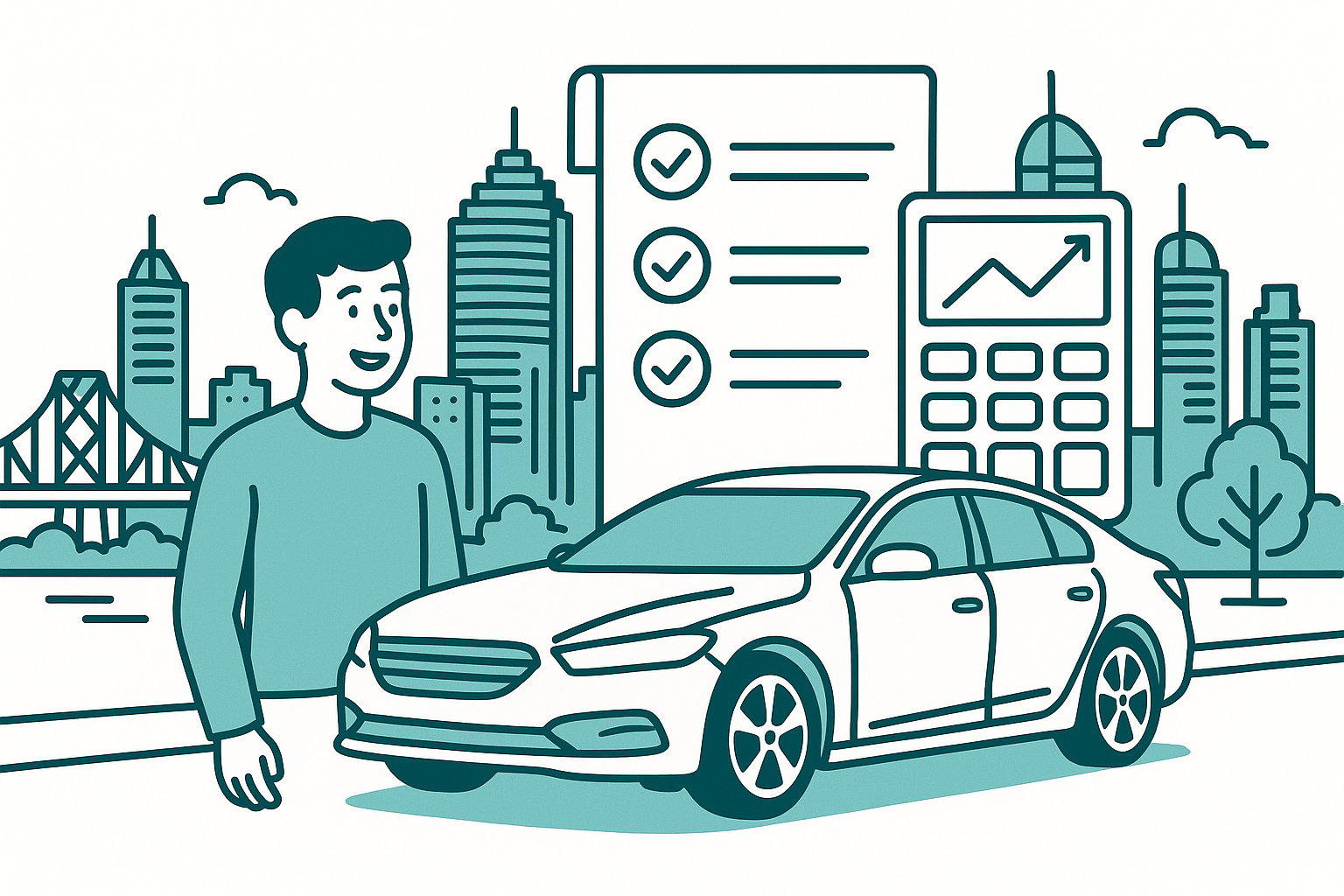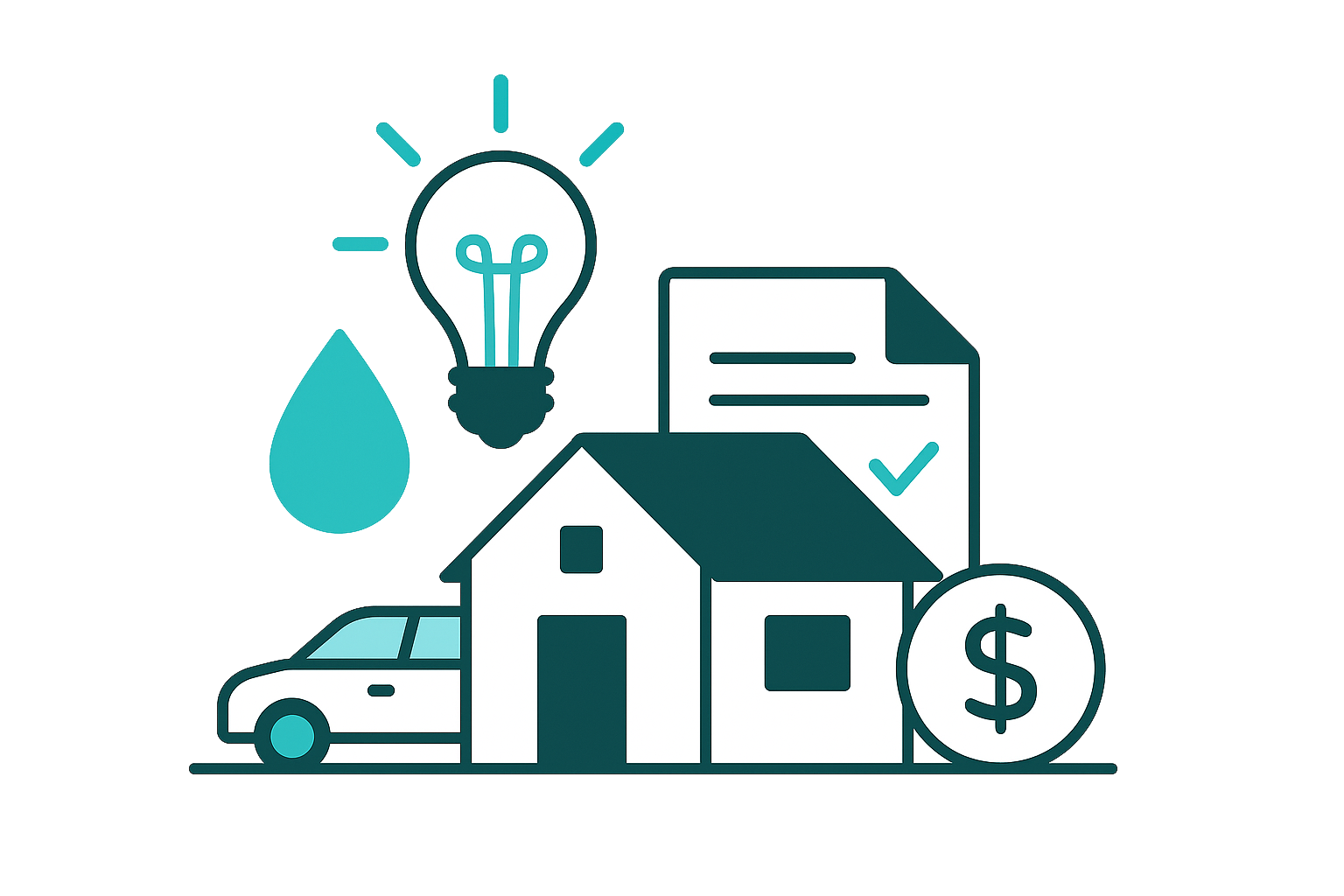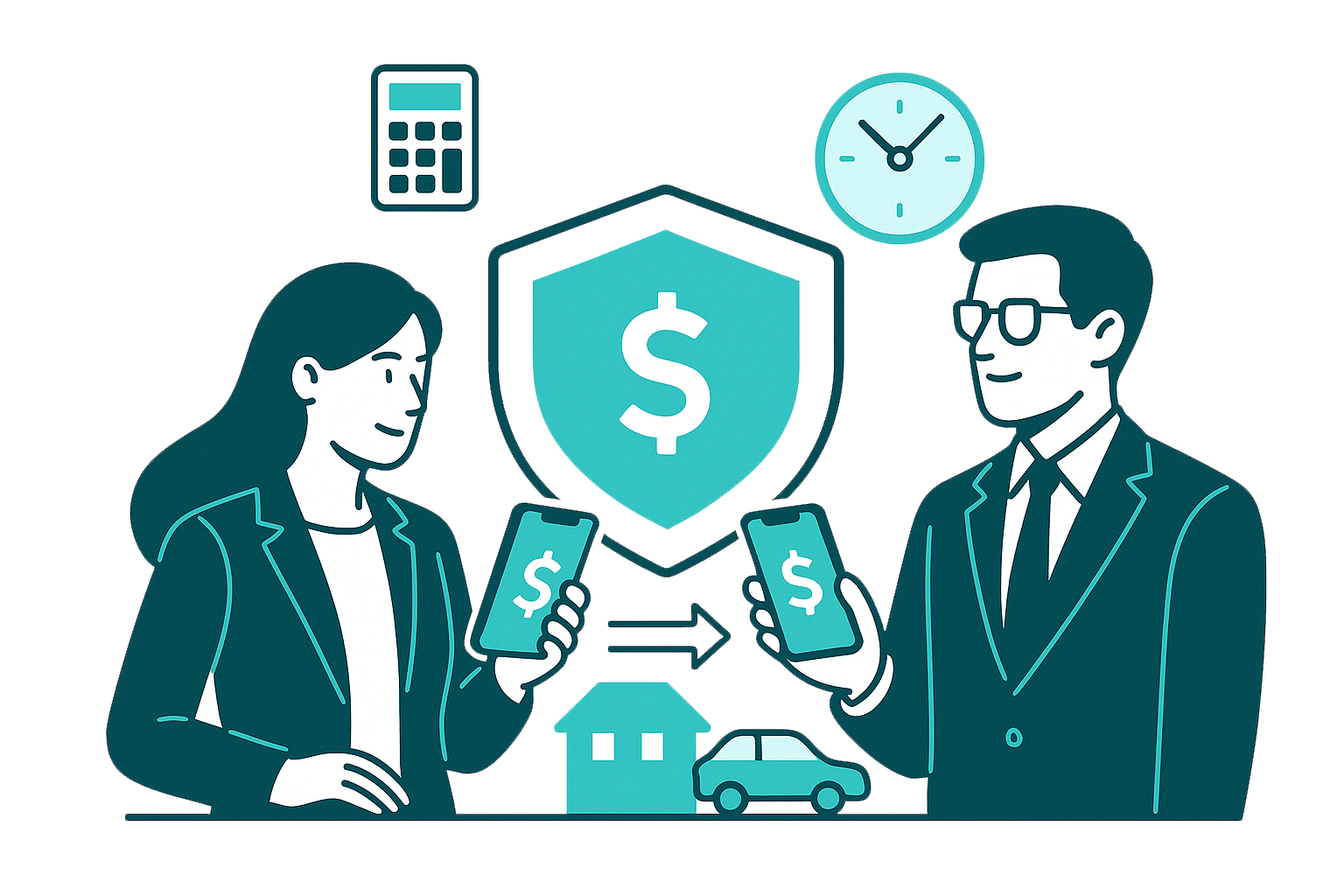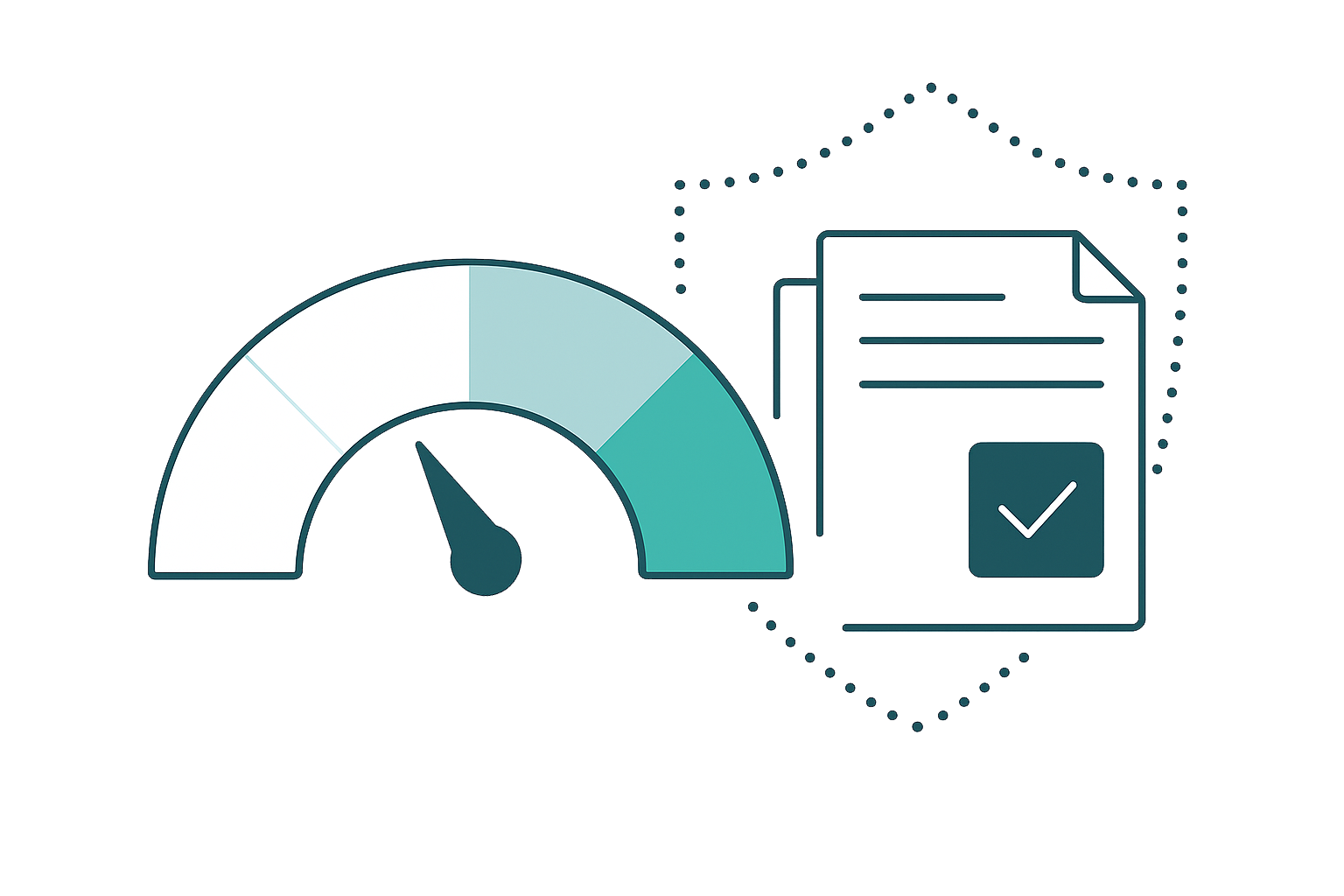Navigating Brisbane Car Loans: Your Ultimate Guide
- Personal Finance
- 04 Mins read

Navigating Brisbane Car Loans: Your Ultimate Guide
Getting a car loan in Brisbane might feel overwhelming, especially with so many lenders and options available. But with some knowledge and a clear plan, you can navigate this process confidently. Whether you’re buying your first car or upgrading to a new model, understanding how car loans work is key to making smart financial decisions.
Why Consider a Car Loan?
A car loan allows you to spread the cost of a vehicle over time. Instead of paying the full price upfront, you borrow money from a lender, then pay it back in instalments with interest. This makes owning a car more affordable and manageable.
But remember: a car loan is a financial agreement. You need to understand the terms to avoid surprises down the road.
Types of Car Loans Available in Brisbane
In Australia, there are mainly two types of car loans:
-
Secured Loans: Your car acts as collateral. If you fail to repay, the lender can take the vehicle. Secured loans usually have lower interest rates because they’re less risky for lenders.
-
Unsecured Loans: No collateral is involved. These often have higher interest rates and stricter approval criteria. They’re less common for car purchases but might be an option depending on your financial situation.
Most Brisbane buyers opt for secured loans due to better interest rates.
Key Factors to Consider Before Applying
Before you apply for a car loan, think about these critical points:
-
Interest Rates: This is the cost of borrowing. Lower rates save you money over the life of the loan. Always compare options.
-
Loan Term: How long you take to repay affects your monthly payments and total interest. Longer terms make monthly payments smaller but increase total interest paid.
-
Deposit Amount: A larger deposit reduces the amount you borrow, lowering your interest costs and repayment amount.
-
Your Credit Score: A good credit score can secure better rates. Check your score and improve it if needed before applying.
How to Find the Right Lender in Brisbane
The Brisbane market hosts a variety of lenders—banks, credit unions, and non-bank lenders. Here’s how to choose wisely:
-
Compare Interest Rates: Use comparison websites or request quotes from multiple lenders. As per the RBA, even a small difference in rates can lead to significant savings over time.
-
Assess Fees and Charges: Watch for establishment fees, monthly fees, early repayment fees, and insurance costs.
-
Check Loan Flexibility: Can you make extra repayments? What’s the process for refinancing or extending the loan?
-
Customer Service: Read reviews or ask for recommendations. A lender with good support can help if issues arise.
The Importance of Your Credit Score
Your credit score heavily influences your loan options. It’s a quick snapshot of your financial trustworthiness. A score above 700 usually qualifies for the best rates.
Tip: Check your credit report early. If your score needs improvement, pay off overdue accounts and avoid applying for multiple loans at once.
Understanding Interest Rates and Repayments
Interest rates in Australia are either fixed or variable:
-
Fixed Rates: Stay the same throughout the loan. Easy to plan for payments.
-
Variable Rates: Can go up or down with the cash rate set by the RBA. Your payments might change.
Let’s consider a quick example:
Imagine borrowing $20,000 over five years. At an interest rate of 5%, your monthly repayment might be around $377. If the rate rises to 6%, payments could increase to around $386. Small differences matter over time.
The Power of Compound Interest
Compound interest is interest calculated on both the amount borrowed and accumulated interest. Think of it like a snowball rolling downhill—growing bigger as it gains more snow.
For example, if you borrow $20,000 at 5% interest, compounded annually:
- After one year, interest is $1,000.
- By year five, interest has compounded, making your total owed higher than simple interest calculations suggest.
To save money, aim to pay off your loan early if possible. Even paying an extra $50 a month can cut years off your repayments and reduce total interest paid.
First-Time Buyers vs. Experienced Investors
First-time car buyers often focus on affordability and minimal fuss. They might prefer shorter loan terms and larger deposits to keep interest costs low.
Seasoned investors or individuals upgrading their vehicles might consider longer terms or refinancing options. They may also leverage their existing assets or credit history to negotiate better terms.
Your approach should match your financial goals and comfort level.
Common Pitfalls to Avoid
-
Skipping the Fine Print: Always read the loan agreement thoroughly.
-
Overborrowing: Borrow only what you need. Remember, you’ll also pay interest on this amount.
-
Ignoring Additional Costs: Insurance, registration, and maintenance costs can add up. Factor these into your budget.
-
Not Considering Overall Affordability: Make sure your monthly repayments fit comfortably within your income and expenses.
Practical Tips for Securing a Good Car Loan
-
Get Pre-Approved: This gives you a clear budget and strengthens your negotiations with dealerships.
-
Save a Larger Deposit: The bigger your upfront payment, the less you’ll borrow—and pay in interest.
-
Build a Good Credit History: Timely bill payments and reducing existing debt improve your credit score.
-
Consult a Financial Advisor: They can help you understand the best options tailored to your situation.
The Role of Government and Regulatory Bodies
The Australian Securities and Investments Commission (ASIC) advises consumers to compare lenders and understand loan conditions thoroughly. The Reserve Bank of Australia (RBA) sets the cash rate, influencing interest rates. Staying informed about these factors helps you make smarter borrowing decisions.
Final Thoughts
Securing a car loan in Brisbane doesn’t have to be complicated. With careful planning and research, you can find a loan that suits your needs and finances. Remember, your choices impact your financial health—so take your time and make informed decisions.
Key Takeaways:
- Compare lenders and interest rates thoroughly.
- Understand your loan’s terms and flexibility.
- Keep an eye on your credit score.
- Budget for all related costs, not just the loan repayments.
- Aim to pay your loan off early to save on interest.
Owning your dream car is within reach—just steer wisely through the loan process!
If you’re feeling unsure, consider talking to a financial professional. A little guidance can go a long way toward driving your financial future smoothly.



